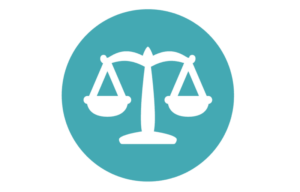
Google has been accused of violating the Illinois Biometric Information Privacy Act (BIPA) in a new lawsuit over the compiling of faceprints.
This case comes just one week after social media giant Facebook agreed to pay $550 million in a settlement on a similar lawsuit.
In a class-action complaint filed by plaintiff and Illinois resident Brandon Molander, the filing claims that “[u]nbeknownst to the average consumer… Google’s proprietary facial recognition technology scans each and every photo uploaded to the cloud-based Google Photos for faces, extracts geometric data relating to the unique points and contours (i.e., biometric identifiers) of each face, and then uses that data to create and store a template of each face — all without ever informing anyone of this practice.”
Molander claims that, through its actions, Google is in violation of BIPA, which requires all companies operating within the state of Illinois to obtain consumers’ written consent before the collection or storage of their biometric data, which includes facial geometry.
“Molander’s Google Photos account contains dozens of photos depicting Plaintiff Molander that were taken with his smart phone and automatically uploaded in Illinois to Google Photos,” his filing says, adding that “Google analyzed these photos by automatically locating and scanning Plaintiff Molander’s face, and by extracting geometric data relating to the contours of his face and the distances between his eyes, nose, and ears — data which Google then used to create a unique template of Plaintiff Molander’s face.”
This case is similar to one filed against Google in 2016, also in federal district court in Illinois. In that case, District Court Judge Edmond Chang ruled in favor of Google, saying that faces are “public” information, and that the company’s alleged practices didn’t cause the sort of concrete injury that would warrant a lawsuit.
“All that Google did was to create a face template based on otherwise public information — plaintiffs’ faces,” Chang wrote in his ruling.
However, federal judges in California came to the opposite conclusion in the lawsuit against Facebook. In that case, a trial judge and a three-judge panel rejected Facebook’s claims that its faceprint collection didn’t violate BIPA.
Both cases however, add to a long and growing list of major companies that have found themselves the subject of BIPA violations, joining the likes of The Home Depot, Dr. Pepper, Wallgreens, and WeWork.
Source: MediaPost
–
February 10, 2020 – by Tony Bitzionis





Follow Us